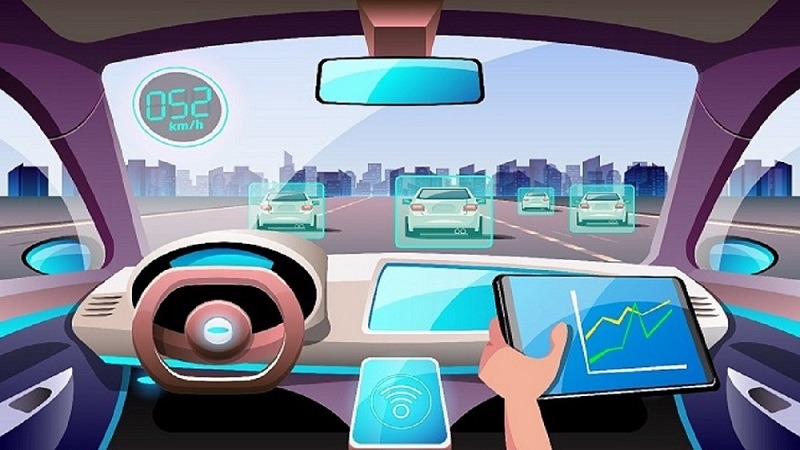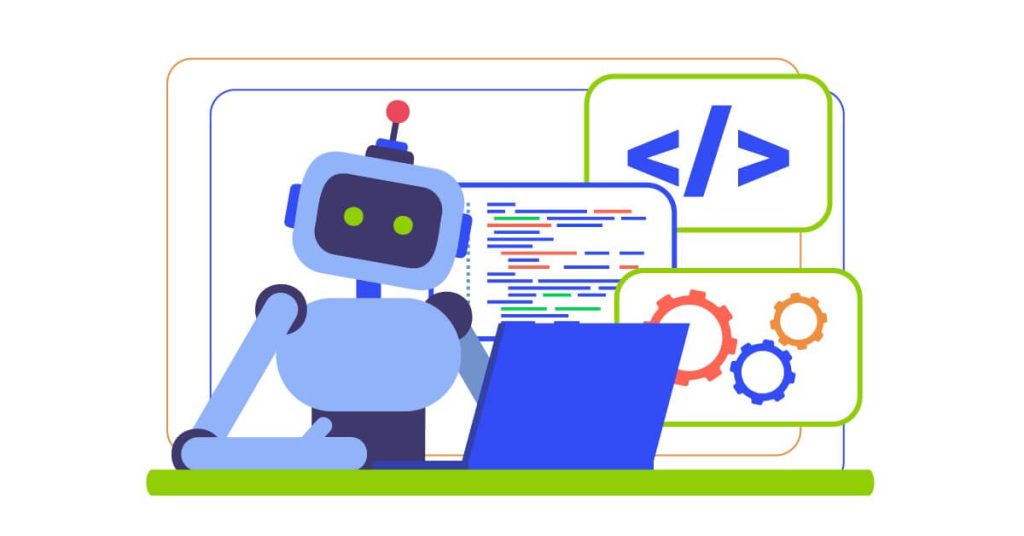Revolutionizing Hospitality: AI’s Impact on the Global Hotel Industry
In order to better service their visitors, a number of hotels have already implemented robot concierges since 2014. Connie, a Hilton hotelier who uses IBM’s Watson supercomputer, is in the lead. Other hotel robots are ALO from Aloft Hotels, Yobot from Yotel Hotels, and Cleo and Leo from Hotel EMC2.
Measuring the operational efficacy of these robots is still impossible because they are still deployed in huge amounts. They are undoubtedly generating a lot of marketing buzz for their individual brands, though.
According to predictions made by the International Data Collection, in the coming years, 60% of hotels and 70% of travel firms will use AI technology, drastically altering the hospitality industry. While this may seem unrealistic to some, a Gartner poll backed up this assertion, indicating that the global usage of generative AI development services in Hotel industry has expanded by an astounding 270%.
Why is AI Essential for Modern Hotels?
The majority of use case of Artificial Intelligence in Hotel industry, such as automation and data science, are found in the backend hotel operations; thus, most visitors need to be made aware of the proliferation of technology in the hospitality sector. The majority of hotels use AI in the following ways:
Examples of the Use of Artificial Intelligence in the Hotel Industry
- Enhancing Guest Experience With 24/7 Assistance:
This involves utilizing push alerts, chatbots, and automated social media messaging with minimal to no reliance on virtual help. Thanks to the aforementioned digital technologies, hotel owners can answer customer inquiries around the clock, seven days a week, making human-to-human communication nearly impossible.
- Personalization for Guests
According to a recent Hotel News Now poll, the application of machine learning and Artificial Intelligence in hotel industry to guest personalization reached 21.8% of satisfied customers. This involves developing personalized travel guides, in-house hotel experiences, and culinary menus based on the information provided by each customer.
- Smart Room Technologies
Artificial intelligence -powered smart room solutions allow for remote management of features like temperature, lighting, and entertainment systems, improving visitor comfort and using less energy. AI also aids in the cost- and efficiency-saving optimization of personnel scheduling, inventory levels, and maintenance schedules.
- Enhanced Security and Safety
AI-driven surveillance systems are able to keep an eye on hotel grounds in real-time, spotting and warning personnel of any questionable activity or potential threats to their safety. By recognizing visitors and any threats, facial recognition technology may improve security and provide a safer atmosphere for both employees and visitors.
AI in Banking: Aegis Can Help You Navigate the Future
The future of banking lies in AI. Through Artificial Intelligence in banking solutions, banks can unlock a new level of efficiency, security, and customer satisfaction.
These features prove the importance of Artificial Intelligence in hotel industry.

What benefits does AI provide to the hotel industry?
Researchers predict that the global Artificial Intelligence in the health care will grow at a compound annual growth rate as the usage of AI becomes more and more appealing to the sector. 11.26% through 2030. The following are some important of ai in hotel industry.
Colliers International research indicates that hotels utilizing Artificial Intelligence saw a 10% boost in income and a 15% reduction in expenses, enabling brands to achieve noteworthy revenue development.
Artificial Intelligence increases income in several ways, but one of the most significant is by helping hotels maximize occupancy rates, particularly during the busiest times of the year.
- Improved Client Support
Hotels may now exceed expectations in terms of customer service thanks to AI and ML. It’s much simpler to communicate and engage with customers even before their check-in time, thanks to chatbots and automated messaging. Hoteliers can benefit from personalization through data collection by implementing AI in Hotel industry
- Management of Revenue
According to the report above, hotels’ revenue management—which has 60% of guests satisfied—is thought to be the most successful application of AI and ML. Machine learning technologies make smart pricing setting, fully automated booking processes, competitor analysis, KPI tracking, market analysis and segmentation, and more possible. This keeps hotel operators competitive in the industry and enables them to provide excellent value for their patrons.
- Management of Online Reputation
It might surprise you that even the biggest hotel chains require assistance to maintain a stellar internet reputation. As a result, more hotels are using AIs to manage their online reputations. According to a recent survey on online reviews, 81% of tourists check reviews before making a hotel reservation, making review management operations the most important aspect of online reputation management.
- Information Analysis
Apart from the aforementioned domains, Artificial Intelligence in hotel industry are employed for broad data analysis. This involves inventory management, consumer behavior analysis, demand forecasting, market projection, and other operational activities to guarantee a first-rate visitor experience.
In addition, thanks to review management systems, hotels can still communicate with guests via online review sites even after they have checked out, offering comprehensive customer service as a result.
- Enhanced Output
Despite what some people believe, Artificial Intelligence benefits humans rather than replacing them. Artificial Intelligence for Hotels enables hotels to improve operational procedures, anticipate visitor needs, reduce risk by using precise problem-solving techniques, and forecast customer behavior.

Artificial Intelligence Review Response Generator
- Try the most individualized Artificial Intelligence review responses at no cost.
- Let your AI Review Assistant compose personalized review responses to enhance your company’s online reputation and search engine results.
- Test without cost
- Credit card not needed
- a solid internet reputation
Online reputation is becoming the lifeblood of marketing, even in the hospitality sector. According to our article on online reputation management, 94% of customers will never do business with a company that has a bad online reputation, and 52% of people would never consider booking a hotel without reviews despite its offers.
Because it draws in new clients, reputation management solutions like Artificial Intelligence review reply generators have emerged as beneficial AI technology for hotel companies. An increasing number of hotels are discovering the value of Artificial Intelligence support for online reputation management, even though some hotels are still stubborn against utilizing AIs in particular aspects of their operations.
Challenges of Implementing AI in Hotel Industries
Artificial intelligence systems are only as good and efficient as their users. This implies that when used improperly, these technologies can be costly, ineffective, and even cause guest displeasure for hotel managers and property owners.
Make sure you purchase Artificial Intelligence technology that will close a gap in your management process to prevent this. Examining the use cases offered by your Artificial Intelligence software suppliers will help you achieve this. The primary weakness in your marketing is that you are unable to respond to and profit from guest evaluations. Then, it’s advisable to give purchasing a 100+ Top AI tools priority in order to assist your team in creating interesting and well-optimized review comments.
10 AI tools every hotelier should know
The following are the best 10 AI developers tools every hotelier should know that hotels utilize to deliver a remarkable guest experience:
- MARA – Artificial Intelligence review reply generator enables hotels and businesses to respond to any reviews within seconds.
- DialogShift – Chatbot and messaging automation for guest inquiries and direct bookings.
- Allora – Provides data for guest personalization and other customer retention programs.
- Voiceplug – Quick, personalized food ordering experience.
- JoshAI – Voice and touch technology for homes and hotels.
- Mobotix – Artificial Intelligence parking technology for hotels and other businesses.
- Hotelier Artificial Intelligence – All-in-one guest management, CRM, guest survey, and marketing platform.
- Viqal – Staff-to-guest engagement through predictive AI and autonomous guest data.
- Winnow Vision – Food waste technology for hotels and other business establishments.
- Meteum – Weather forecasting technology based on data from ground and space.
Conclusion:
Thus, the importance of Artificial Intelligence in hotel industry is proved. The technology serves as a secret ingredient that takes hotels to the next level. It helps hotels understand guests better so they can give them exactly what they want, making each guest feel special. By using AI, hotels can run smoother, provide better service, and make sure guests have an amazing experience. It’s like having a super-smart assistant that helps hotels do their job even better, making everyone happy and satisfied.
Frequently Asked Questions
- What is smart hotel technology?
Smart hotel technology is a system of automated workflows that can provide enhanced customer service to guests. Integrating with Artificial Intelligence, Machine Learning (ML), and the Internet of Things (loT) can redefine the hotel industry.
- How do robots help in changing the hotel industry?
Robots significantly reduce labor costs by efficiently handling a multitude of tasks.
- How robot can be used in customer service at hotel?
Robots can provide 24/7 customer service, handle multiple inquiries simultaneously, and offer accurate assistance for critical solutions. They can understand and interact in multiple languages, making them versatile tools for enhancing customer support in various settings.
Read More:
E-commerce businesses are increasingly turning to Artificial Intelligence shopping services to remove the requirement for people to direct customers.



